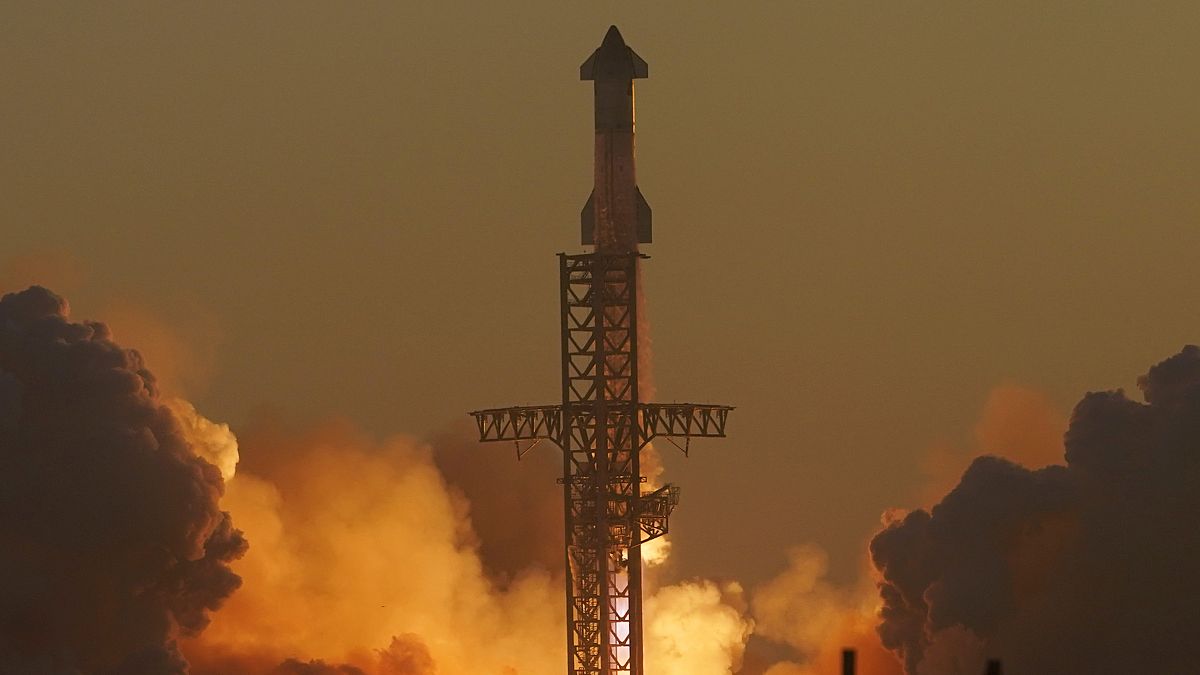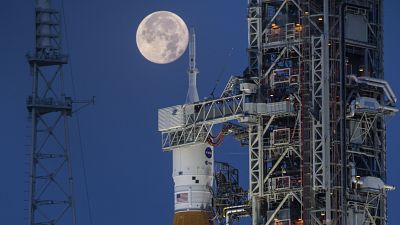From ESA's JUICE mission and NASA's asteroid missions to SpaceX's attempts to launch the world's largest rocket, 2023 was another landmark for space.
2023 was another landmark year for space exploration, marked by some key milestones.
In April, ESA's flagship mission, JUICE (or Jupiter Icy Moons Explorer to use its full name) successfully launched into orbit aboard an Ariane 5 rocket from the spaceport in Kourou, French Guiana.
It’s travelling across our solar system to hopefully reach Jupiter in 2031.
The agency said the spacecraft would explore the "Gas Giant" and three of its icy moons – Ganymede, Callisto, and Europa – in search of habitable environments for extraterrestrial life forms.
This was the first time that Europe set off for a planet in the outer solar system beyond Mars.
In September, NASA's Osiris-Rex spacecraft brought back the first samples from the Bennu asteroid after a seven-year-long mission.
The samples were parachuted into the Utah desert in a canister that has travelled 100,000 km to return to Earth.
The team behind the mission said the data gleaned by Osiris-Rex will help Earth deflect any potentially harmful asteroid heading in our direction.
Bennu is expected to come dangerously close to Earth in the year 2182 - possibly close enough to hit.
NASA is so invested in asteroids that it launched a specially designed spacecraft to the enigmatic, metal-rich asteroid Psyche in October.
"Scientists are interested in asteroids because they're preserved building blocks from early times in this solar system," said the Associated Press’ Cape Canaveral correspondent, Marcia Dunn.
"But even more so, the more we learn about asteroids, the more humanity will be able to protect itself in case we ever have one coming our way, and we need to shove it off course or do some kind of - something, to save the planet. So there's a lot of reasons why NASA's so interested in asteroids," Dunn added.
The Psyche spacecraft's 3.6 billion km journey through space is planned to last nearly six years before finally reaching the asteroid in 2029.
2023 is also a year where Elon Musk’s SpaceX built and tested the world's biggest and most powerful rocket twice – in April when the rocket exploded on its first attempt to launch and again (successfully) in November.
Starship can lift as much as 250 tons and accommodate 100 people on a trip to Mars.
Musk has said he planned to use Starship to launch satellites into low-Earth orbit, including his own Starlinks, before strapping anyone in for manned missions.
For more on this story, watch the video in the media player above.



